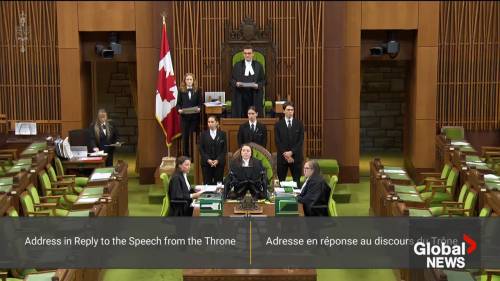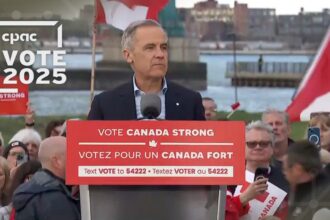In a tense parliamentary showdown yesterday evening, Prime Minister Justin Trudeau’s Liberal government narrowly survived its first confidence vote of the fall session, securing their position despite mounting criticism over economic policies and housing affordability.
The confidence motion, introduced as an amendment to the government’s economic priorities, passed with 175 votes in favor and 144 against, with the New Democratic Party (NDP) ultimately lending crucial support despite recent threats to withdraw from their supply-and-confidence agreement.
“This vote represents a pivotal moment for our government as we continue implementing policies that support Canadians through challenging economic times,” Trudeau stated following the vote. “We recognize the concerns expressed by opposition parties and remain committed to addressing the pressing issues facing Canadian families.”
Conservative Leader Pierre Poilievre delivered scathing criticism during the debate, focusing particularly on housing affordability and inflation. “Canadians are struggling to put food on their tables and keep roofs over their heads while this government continues pursuing policies that have demonstrably failed,” Poilievre argued before the vote.
The confidence vote comes amid troubling economic indicators, with Statistics Canada reporting that housing prices have increased by approximately 22% since 2021, while average rent in major urban centers has risen by nearly 30% in the same period.
NDP Leader Jagmeet Singh, whose party’s support proved decisive, expressed significant reservations before ultimately backing the government. “We continue supporting this government with extreme reluctance,” Singh told reporters. “Our commitment remains to Canadians struggling with affordability, not to propping up Liberal policies that fail to deliver meaningful change.”
Political analysts suggest this narrow victory may signal deeper challenges ahead for the Trudeau government. Dr. Melissa Chen, professor of political science at the University of Toronto, noted: “This vote demonstrates the increasingly precarious position of the Liberal minority government. The NDP’s continued support appears increasingly conditional, raising questions about the sustainability of the current parliamentary arrangement.”
Recent polling data from the Canadian Institute for Political Research shows Liberal popularity has declined to 29%, while Conservative support has risen to 38%, suggesting potential vulnerability should another confidence vote emerge in coming months.
The vote followed intense debate on housing initiatives announced earlier this month, including a $15 billion investment in affordable housing projects across major urban centers. Critics argue these measures fall short of addressing structural issues in Canada’s housing market, with the Parliamentary Budget Officer estimating a shortfall of approximately 250,000 affordable housing units nationwide.
As Parliament continues its fall session, attention now turns to the upcoming economic update expected in November, which may include additional measures addressing affordability concerns raised during this confidence vote.
For Canadians watching these parliamentary maneuvers unfold, the fundamental question remains: Will this government’s survival translate into meaningful action on the economic pressures facing ordinary citizens, or merely postpone a political reckoning that seems increasingly inevitable?

























